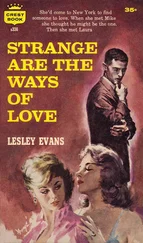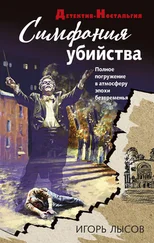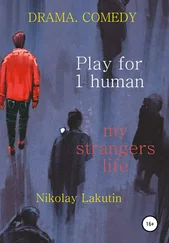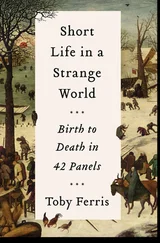Douglas Hofstadter - I Am a Strange Loop
Здесь есть возможность читать онлайн «Douglas Hofstadter - I Am a Strange Loop» весь текст электронной книги совершенно бесплатно (целиком полную версию без сокращений). В некоторых случаях можно слушать аудио, скачать через торрент в формате fb2 и присутствует краткое содержание. Жанр: Прочая документальная литература, на английском языке. Описание произведения, (предисловие) а так же отзывы посетителей доступны на портале библиотеки ЛибКат.
- Название:I Am a Strange Loop
- Автор:
- Жанр:
- Год:неизвестен
- ISBN:нет данных
- Рейтинг книги:4 / 5. Голосов: 1
-
Избранное:Добавить в избранное
- Отзывы:
-
Ваша оценка:
- 80
- 1
- 2
- 3
- 4
- 5
I Am a Strange Loop: краткое содержание, описание и аннотация
Предлагаем к чтению аннотацию, описание, краткое содержание или предисловие (зависит от того, что написал сам автор книги «I Am a Strange Loop»). Если вы не нашли необходимую информацию о книге — напишите в комментариях, мы постараемся отыскать её.
I Am a Strange Loop — читать онлайн бесплатно полную книгу (весь текст) целиком
Ниже представлен текст книги, разбитый по страницам. Система сохранения места последней прочитанной страницы, позволяет с удобством читать онлайн бесплатно книгу «I Am a Strange Loop», без необходимости каждый раз заново искать на чём Вы остановились. Поставьте закладку, и сможете в любой момент перейти на страницу, на которой закончили чтение.
Интервал:
Закладка:
Although the above is a bit more flowery than what I said to my mother, it gives the essence of my message. I don’t know what effect it had on her feelings about the picture, but that photo is still there, on a counter in her kitchen, and every time I look at it, I remember that exchange.
What Is It Like to Be a Tomato?
I slice up and devour tomatoes without the slightest sense of guilt. I do not go to bed uneasily after having consumed a fresh tomato. It does not occur to me to ask myself which tomato I ate, or whether by eating it I have snuffed an inner light, nor do I believe it is meaningful to try to imagine how the tomato felt as it was sitting on my plate being sliced apart. To me, a tomato is a desireless, soulless, nonconscious entity, and I have no qualms about doing with its “body” as I like. Indeed, a tomato is nothing but its body. There is no “mind–body problem” for tomatoes. (I hope, dear reader, that we agree on this much!)
I also swat mosquitoes without a qualm, though I try to avoid stepping on ants, and when there is an insect other than a mosquito in the house, I usually try to capture it and carry it outside, where I let it go unharmed. I eat chicken and fish sometimes [Note: This is no longer the case — see the Post Scriptum to this chapter], but many years ago I stopped eating the flesh of mammals. No beef, no ham, no bacon, no spam, no pork, no lamb — no thank you, ma’am! Mind you, I would still enjoy the taste of a BLT or well-done burger, but for moral reasons, I simply don’t partake of them. I don’t want to go on a crusade here, but I do need to talk a little bit about my vegetarian leanings, because they have everything to do with souls.
Guinea Pig
When I was fifteen, I had a summer job punching buttons on a Friden mechanical calculator in a physiology lab at Stanford University. (This was back in those days when there was but one computer on the whole Stanford campus and few scientists even knew of its existence, let alone thought about using it for their calculations.) It was pretty grueling work to do such “number-punching” for hours on end, and one day, Nancy, the graduate student for whose research project I was doing all this, asked me if, for relief, I’d like to try my hand at other kinds of tasks around the lab. I said “Sure!”, and so that afternoon she escorted me up to the fourth floor of the physiology building and showed me the cages where they kept the animals — literally guinea pigs — that they used in their experiments. I still remember the pungent smell and the scurrying-about of all those little orange-furred rodents.
The next afternoon, Nancy asked me if I would please go up to the top floor and bring down two animals for her next round of experiments. I didn’t have a chance to reply, however, for no sooner had I started to imagine myself reaching into one of those cages and selecting two small soft furry beings to be snuffed than my head began spinning, and in a flash I fainted right away, banging my head on the concrete floor. The next thing I knew, I was looking up into the face of the lab’s director, George Feigen, a dear old family friend, who was deeply concerned that I might have injured myself in the fall. Luckily I was fine, and I slowly stood up and then rode my bike home for the rest of the day. Nobody ever asked me again to pick animals to be sacrificed for the sake of science.
Pig
Oddly enough, despite that extremely troubling head-on encounter with the concept of taking the life of a living creature, I kept on eating hamburgers and other kinds of meat for several years. I don’t think I thought about it very much, since none of my friends did, and certainly no one talked about it. Meat-eating was just a background fact in the life of everyone I knew. Moreover, I admit with shame that in my mind, back in those days, the word “vegetarian” conjured up an image of weird, sternly moralistic nutcases (the movie The Seven Year Itch has a terrific scene in a vegetarian restaurant in Manhattan that conveys this stereotype to a tee). But one day when I was twenty-one, I read a short story called “Pig” by the Norwegian–English writer Roald Dahl, and this story had a profound effect on my life — and through me, on the lives of other creatures as well.
“Pig” starts off lightly and amusingly — a naïve young man named Lexington, raised as a strict vegetarian by his Aunt Glosspan (“Pangloss” reversed), discovers after her death that he loves the taste of meat (though he doesn’t know what it is that he’s eating). Soon, as in all Dahl stories, things take weird twists.
Driven by curiosity about this tasty substance called “pork”, Lexington, on the recommendation of a new friend, decides to take a tour of a slaughterhouse. We join him as he sits in the waiting room with other tourists. He idly watches as various waiting parties are called, one by one, to take their tours. Eventually, Lexington’s turn comes, and he is escorted from the waiting room into the shackling area where he watches pigs being hoisted by their back legs onto hooks on a moving chain, getting their throats slit, and, with blood gushing out, proceeding head downwards down the “disassembly line” to fall into a cauldron of boiling water where their body hair is removed, after which their heads and limbs are chopped off and they are prepared for being gutted and sent off, in neat little cellophane-wrapped packages, to supermarkets all over the country, where they will sit in glass cases, along with other rose-colored rivals, waiting for purchasers to admire them and hopefully to select them to take home.
As he is observing all this with detached fascination, Lexington himself is suddenly yanked by the leg and flipped upside down, and he realizes that he too is now dangling from the moving chain, just like the pigs he’s been watching. His placidity all gone, he yells out, “There has been a frightful mistake!”, but the workers ignore his cries. Soon the chain pulls him alongside a friendly-looking chap who Lexington hopes will grasp the situation’s absurdity, but instead, the gentle “sticker” grasps Lexington’s ear, pulls the dangling lad a bit closer, and then, smiling at him with lovingkindness, deftly slits the boy’s jugular vein wide open with a razor-sharp knifeblade. As young Lexington continues his unanticipated inverted journey, his powerful heart pumps his blood out of his throat and onto the concrete floor, and even though he is upside down and losing awareness rapidly, he dimly perceives the pigs ahead of him dropping, one by one, into the steaming cauldron. One of them, oddly enough, seems to have white gloves on its two front trotters, and he is reminded of the glove-clad young woman who had just preceded him from the waiting room into the tour area. And with that curious final thought, Lexington woozily slips out of this, “the best of all possible worlds”, into the next.
The closing scene of “Pig” reverberated in my head for a long time. In my mind, I kept on flipping back and forth between being an upside-down oinking pig on a hook and being Lexington, spilling into the cauldron…
Revulsion, Revelation, Revolution
A month or two after reading this haunting story, I accompanied my parents and my sister Laura to the city of Cagliari, at the southern end of the rugged island of Sardinia, where my father was participating in a physics conference. To wind up the meeting in grand local style, the organizers had planned a sumptuous banquet in a park on the outskirts of Cagliari, in which a suckling piglet was to be roasted and then sliced apart in front of all the diners. As honored guests of the conference, we were all expected to take part in this venerated Sardinian tradition. I, however, was deeply under the influence of the Dahl story I had recently read, and I simply could not envision participating in such a ritual. In my new frame of mind, I couldn’t even imagine how anybody could wish to be there, let alone partake of the piglet’s body. It turned out that my sister Laura was also horrified by the prospect, and so the two of us stayed behind in our hotel and were very happy to eat some pasta and vegetables.
Читать дальшеИнтервал:
Закладка:
Похожие книги на «I Am a Strange Loop»
Представляем Вашему вниманию похожие книги на «I Am a Strange Loop» списком для выбора. Мы отобрали схожую по названию и смыслу литературу в надежде предоставить читателям больше вариантов отыскать новые, интересные, ещё непрочитанные произведения.
Обсуждение, отзывы о книге «I Am a Strange Loop» и просто собственные мнения читателей. Оставьте ваши комментарии, напишите, что Вы думаете о произведении, его смысле или главных героях. Укажите что конкретно понравилось, а что нет, и почему Вы так считаете.












